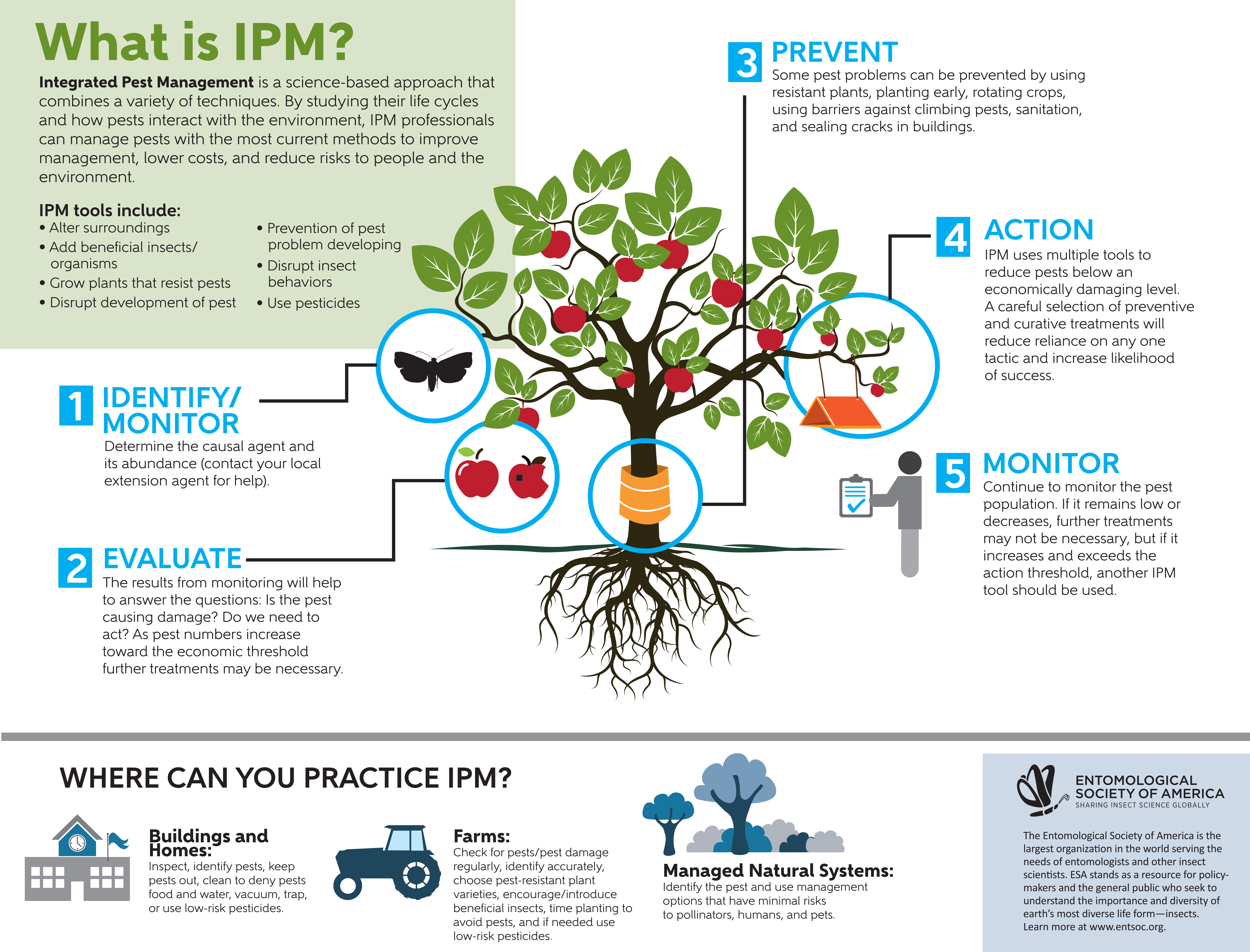The Duty Of Insect Control In Food Safety And Hygiene
The Duty Of Insect Control In Food Safety And Hygiene
Blog Article
Short Article Writer-Franklin Rahbek
Are you familiar with the covert threats that parasites posture to the safety and security and health of your food? From rodents to bugs, these undesirable visitors can infect your components, surfaces, and storage areas.
This write-up checks out the vital function of bug control in preserving the highest possible requirements of food safety and hygiene. Discover effective approaches and avoidance procedures that will help you protect your company, clients, and credibility.
Do not let bugs compromise the top quality of your food.
The Effect of Insects on Food Safety And Security and Hygiene
In your cooking area, insects can have a considerable effect on food security and health. These unwanted visitors, such as rats, insects, and cockroaches, can pollute your food, surface areas, and utensils with damaging germs, infections, and bloodsuckers. They can easily access your kitchen, cabinets, and also your fridge, leaving droppings, urine, and hair.
Not only can they spoil your food by eating with product packaging, but they can additionally spread diseases like Salmonella, E.coli, and Listeria. Visualize preparing a dish for your family members, unaware that the ingredients you're utilizing are currently polluted.
It's essential to take instant action to avoid and regulate parasites in your kitchen area. Recommended Webpage cleansing, proper food storage space, and expert parasite control steps are vital to ensure food safety and keep a sanitary atmosphere in your kitchen.
Reliable Insect Control Methods for the Food Market
Applying efficient insect control approaches is critical for preserving food safety and health in the food sector. By implementing these strategies, you can protect against bugs from polluting the food and ensure that your products are secure for consumption.
One efficient strategy is to on a regular basis examine and monitor your facility for indicators of bug task. This includes monitoring for droppings, nests, or any type of damages triggered by pests.
It's also important to secure all access points to protect against bugs from entering the facility. Normal cleansing and sanitation are necessary, as parasites are brought in to food deposit and spills.
In addition, proper waste management is critical to stop the buildup of food waste that can draw in pests.
Preserving Hygiene Specifications Through Pest Prevention Measures
To preserve hygiene requirements, you must regularly execute pest avoidance steps. By taking positive actions to stop bugs from entering your food establishment, you can ensure the safety and sanitation of your properties. Below are some efficient pest prevention procedures to consider:
- Seal all cracks and crevices: Pests can enter through even the tiniest openings. Frequently check and seal any type of voids in doors, home windows, wall surfaces, and floors to maintain insects out.
- Proper waste monitoring: Deal with food waste quickly and safely in secured containers. This will decrease the attraction of insects and prevent problems.
- Routine cleaning and sterilizing: Keeping tidiness in your facility is vital. Regularly clean and disinfect all locations, paying special attention to areas where parasites might hide or reproduce.
- Carry out a monitoring system: Routinely evaluate your premises for signs of insect task. Set up parasite monitoring gadgets, such as traps or sensors, to identify and deal with any kind of possible problems early.
Conclusion
So bear in mind, when it concerns food safety and health, parasite control plays an essential role.
By carrying out reliable bug control strategies and safety nets, we can ensure the highest possible standards of cleanliness and safety in the food sector.
Do not allow Breeding seasons endanger the quality of our food; let's stand together and secure our health and wellness and health.
